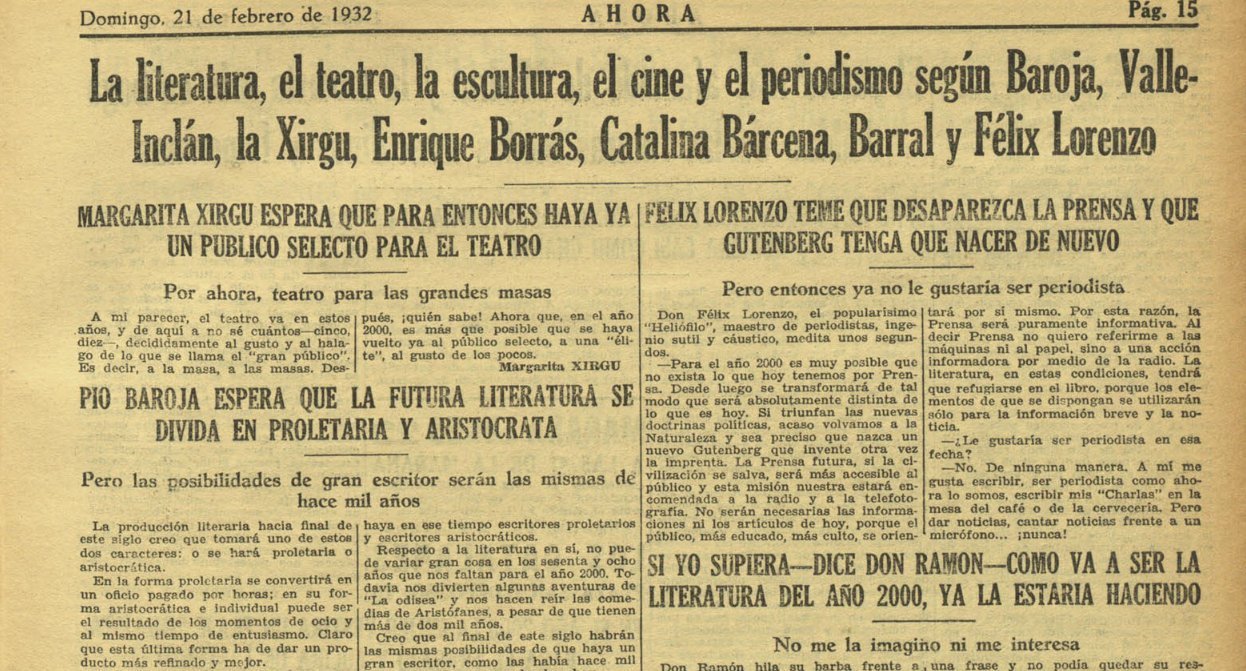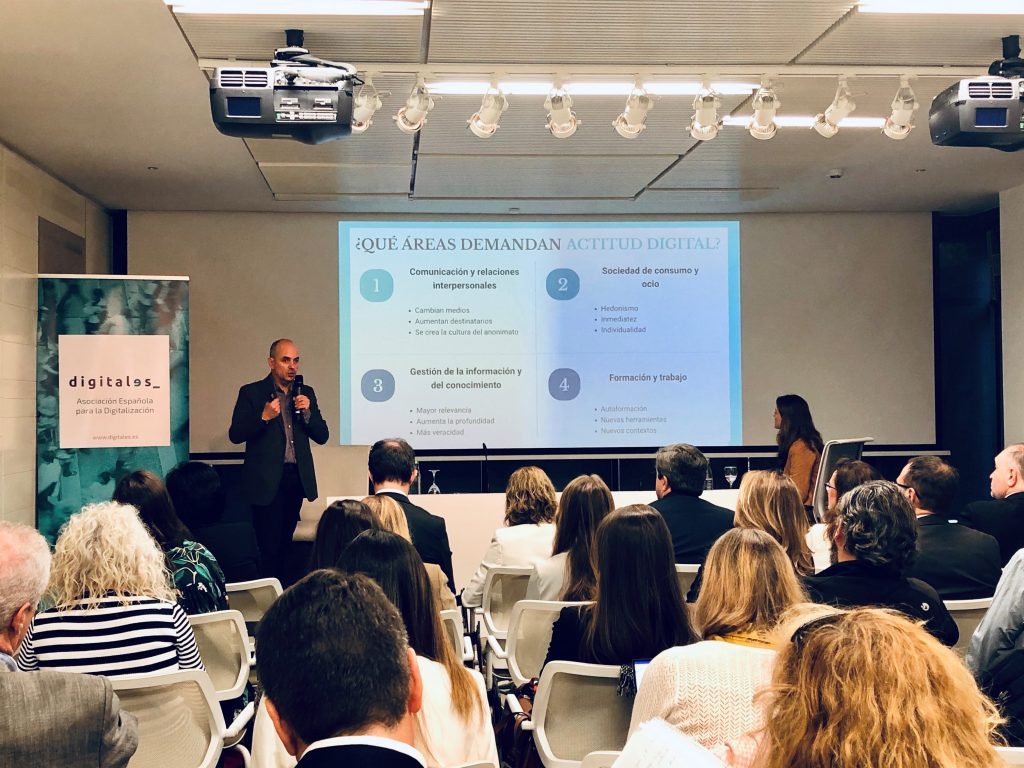17/10/2019
Predicting the future is one of the most complicated tasks there is. The great science fiction films of the 1970s and 1980s told us about spaceships, hoverboards and robots, but not about the prominence of the Internet, a network that actually already existed back then.
Thanks to technology, the world has evolved at breakneck speed, especially since 2007, when the launch of the iPhone, the Kindle, Android, AirBnB, the Watson Artificial Intelligence system and the takeoff of Twitter and Facebook all came together.
That was, according to psychologist and university professor Antonio Pamós, the moment when the pace of change exceeded the human capacity to adapt. This means that today’s society demands a «digital attitude» to face all the challenges arising from the speed of change.
Pamós, who made these statements at a breakfast-colloquium organized by DigitalES, recovered a text published in 1932 in the newspaper Ahora to highlight the great changes that have taken place in Spanish society since then, and those that are still to come.
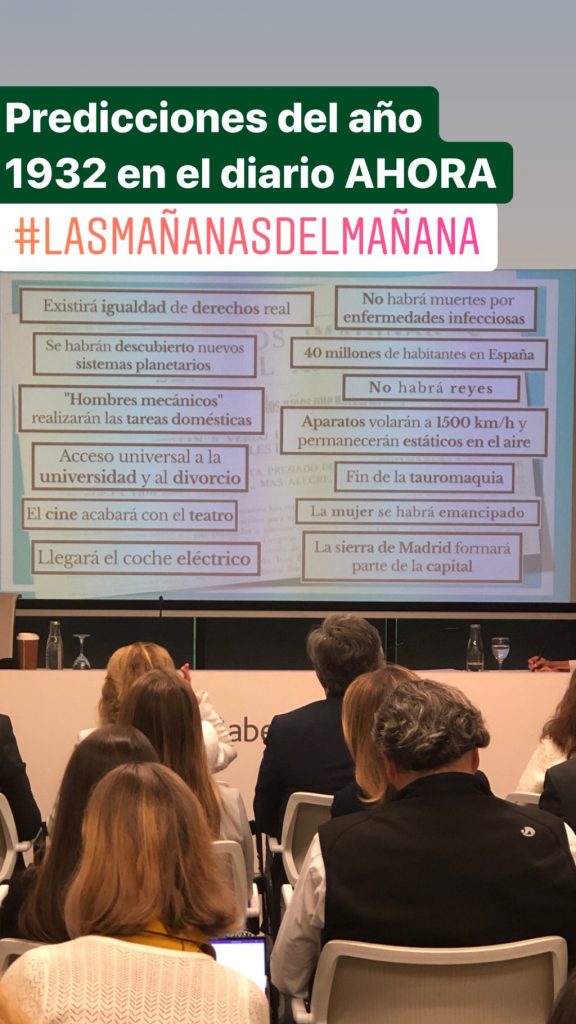
Gran charla de @antoniopamos en #LasMañanasDelMañana sobre #actituddigital @AsocDigitales @Abertis pic.twitter.com/tIvmJ5BkYa
— J. Carlos L. Torres (@CharlieTorres) October 16, 2019
In these predictions, in which respected figures from all fields participated, such as Gregorio Marañón, Ricardo Zamora, the Count of Romanones, Celia Gómez or Ramón del Valle Inclán, those consulted gave -from the recently inaugurated Second Republic- their vision of the world we would find in the year 2000, some of them being completely correct and others failing miserably.
But what did this group of wise men think? We review their predictions to see, to our astonishment, a significant number of correct ones.
Successes (with nuances):
There will be real equality of rights. We are still working on it and not in vain is one of the 17 Sustainable Development Goals subscribed by 193 countries, but the situation has improved a lot in Spain since 1932.
There will be no deaths from infectious diseases. Penicillin had just been discovered, and although it cannot be said that they have disappeared completely, their reduction is very significant.
New planetary systems will have been discovered. And they are still being discovered today. The last one, last July, 31 light-years from Earth.
40 million inhabitants in Spain. In this prediction they nailed it
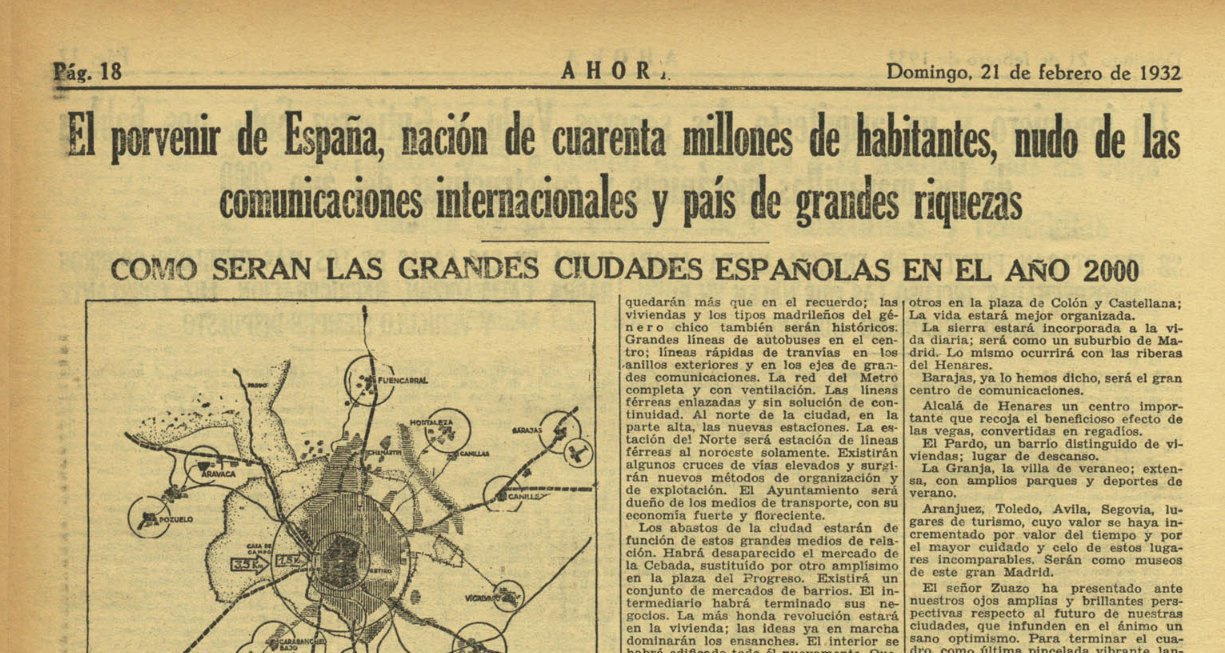
Mechanical men will perform household chores. With many nuances, but from washing machines to the most modern ‘roombas’, more and more household tasks are being delegated to robots.
Universal access to college and divorce. This has been fully achieved in Spain.
Soccer will be the national sport. It may seem obvious, but in 1932 only 3 editions of La Liga had been played and soccer was just another sport in Spain. 100% success.
The electric car will arrive. In his predictions, Oscar Leblanc stated that this vehicle would already exist, but its widespread service replacing the current one had a much more remote horizon than the year 2000. Bingo.
Devices will fly at 1,500 kms/h. It was then said that Buenos Aires would be 10 hours away from Madrid. Currently, an average commercial airplane trip takes between 12 and 14 hours. In non-commercial aircraft, the speed of 1,500 km/h is far exceeded.
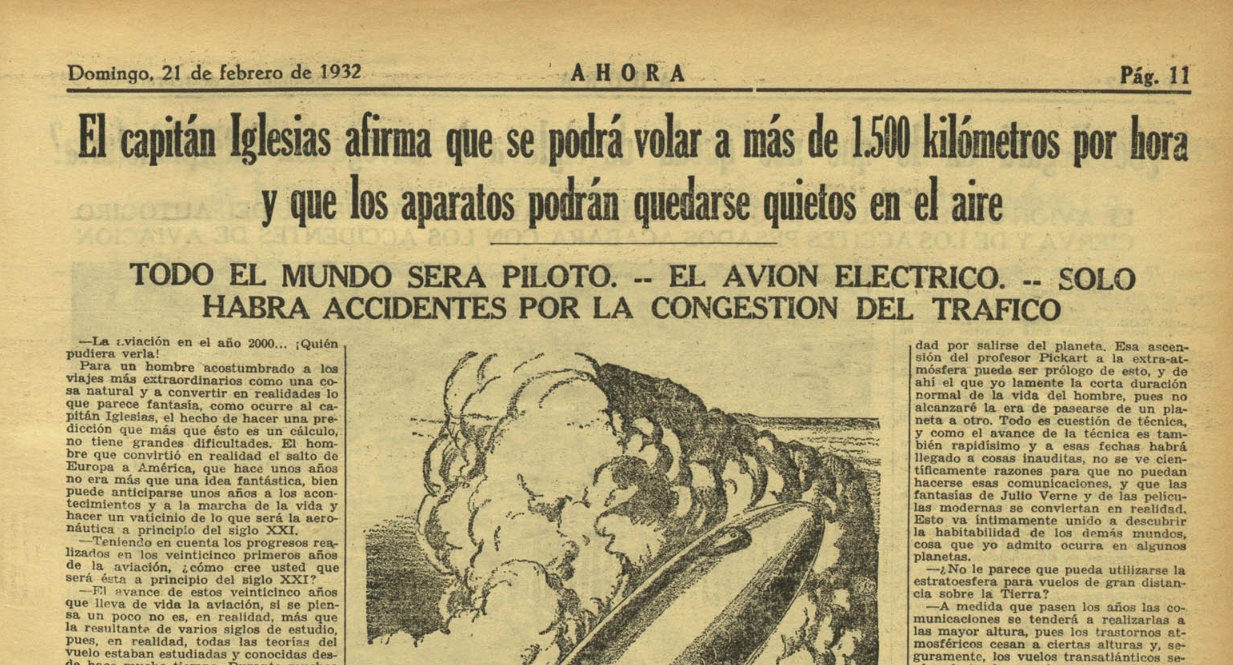
Errors
There will be no kings. Monarchies still exist in the 21st century
End of bullfighting. Although its popularity has decreased compared to the first third of the 20th century, bullfighting continues to be a spectacle in much of Spain.
The cinema will end with the theater. It was said again with respect to television and radio, or the Internet and print media. They almost always end up coinciding and each one finds its space.
The mountains of Madrid will be part of the capital. The growth of the cities has been spectacular, but Madrid has not extended 60 kilometers to the north.
